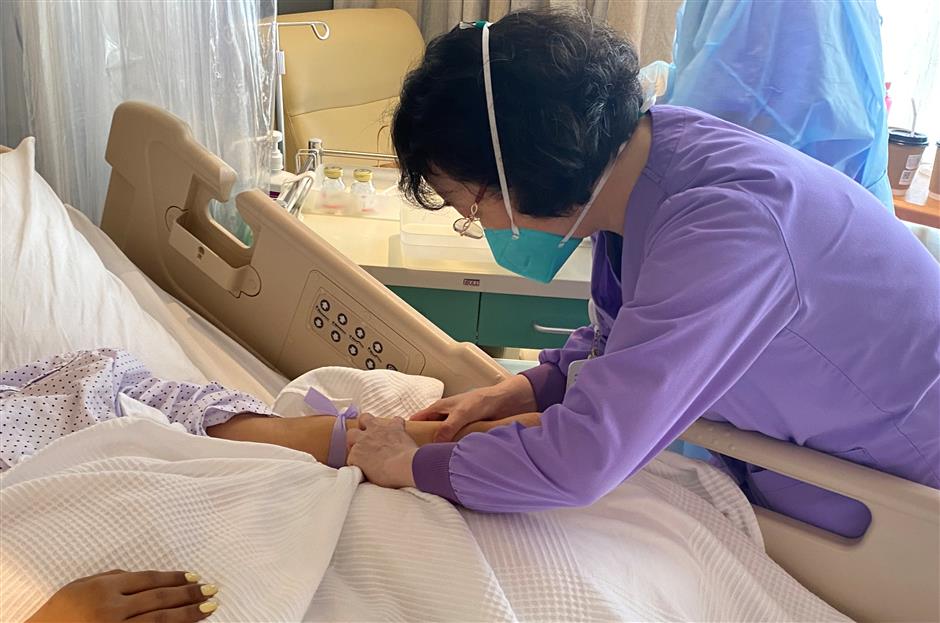Singaporean lymphoma patient discharged after successful cell therapy
A 41-year-old Singaporean woman with life-threatening lymphoma was discharged from Jiahui International Hospital on Wednesday after successfully receiving CAR-T cell immunotherapy.
She was the first foreign patient to receive a domestically made CAR-T infusion after the treatment first received approval in China in 2021.
Shot byDong Jun. Edited byDong Jun. Subtitles byCai Wenjun.
CAR-T, or chimeric antigen receptor T cell therapy, is specifically developed for each individual patient by reprogramming the patient's own immune cells to target their cancer. It is a complicated treatment requiring close monitoring and multidisciplinary professionals during patient selection, bridging treatment, side effect control, and full-process symptom management.
The woman first experienced pain in her neck, shoulder and left arm before July of last year, and her condition deteriorated, with shortness of breath and swelling. She was diagnosed with primary mediastinal B-cell lymphoma accompanied with superior vena cava syndrome, which needed urgent care, according to her doctors from Jiahui.
The frontline treatment with chemotherapy, radiation and target therapy did not achieve complete remission. Doctors decided to use CAR-T therapy and began to harvest cells on July 19.
The reprogrammed T cells were transfused back to the patient on August 21. Two weeks later, she moved back to a general ward, which meant she had passed through the critical period of her recovery successfully.

She is the first foreign patient to receive domestically-made CAR-T therapy in China.
"The therapy showed positive effects on the patient, who was stable two weeks later and discharged after three weeks post CAR-T cell infusion," said Dr Lily Zhou, section head of hematology at Jiahui International Cancer Center. "We will arrange a PET-CT scanning next week to further evaluate her response."
She said about 10 percent of lymphoma patients are primary resistant or refractory to frontline treatments such as chemotherapy, so are candidates for CAR-T therapy.
The family expressed their gratitude to the hospital and medical team and showed a high confidence in Shanghai's medical capability.
"Doctors here are very professional and supportive," said Parry Wu, the patient's husband. "The treatment was successful and everyone in my family is super excited and happy. Shanghai is also our home. Being around friends and family also made this experience much more bearable."

Medics closely monitor and check the patient's condition.
What is CAR-T
Chimeric antigen receptor (CAR) T-cell therapy is an innovative treatment, which gets immune cells called T cells from the patient and changes them in the lab so they can better find and destroy cancer cells. CAR-T therapy can be very effective against some hard-to-treat cancers and has been approved to treat some kinds of lymphomas and leukemia, as well as multiple myeloma. The therapy is typically used after other types of treatment have been tried and failed to achieve positive effects.

Dr Lily Zhou hugs the patient before she is discharged.















